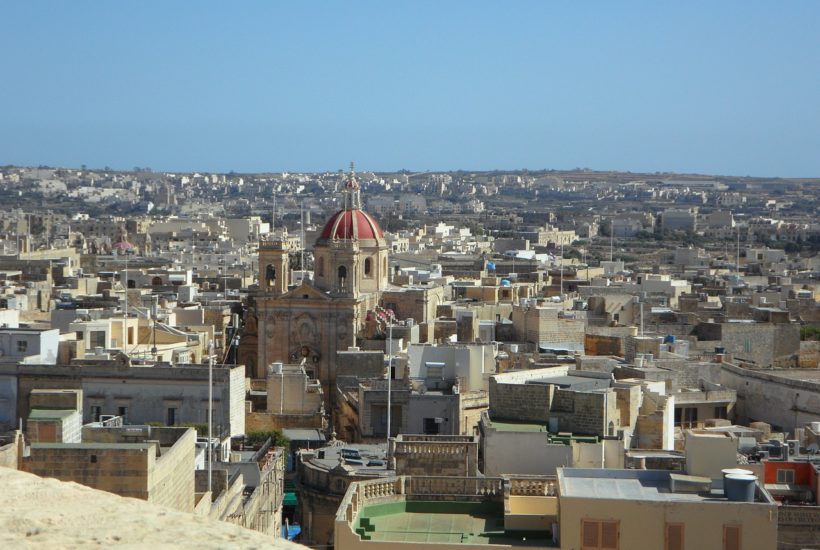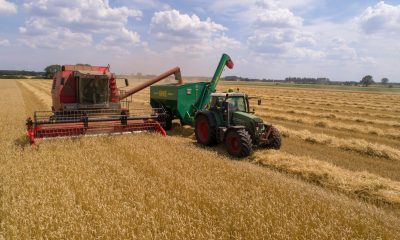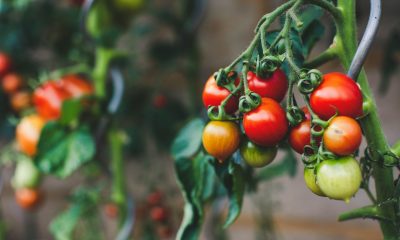Africa
How does Morocco tackle the difficult period caused by the pandemic
The Minister of Industry, Trade and Green and Digital Economy, Moulay Hafid Elalamy said Monday, November 9th, in Rabat that the industry sector has recovered 93% of jobs during the month of July. In terms of support for SMEs, the minister said that a series of special COVID-19 programs have been established, including the funding of 69 projects launched by young people for an investment of $55.3 million.

In response to a central question in the House of Representatives on “The Ministry’s strategy to overcome the persistent impact of COVID-19,” the minister stressed that thanks to the measures taken by the Ministry to deal with the effects of the pandemic, 93% of jobs were recovered in the industrial sector during the month of July. Moreover, he added that 100% of jobs were recovered in the pharmaceutical sector, 97% in the automotive sector and 92% in the textile and leather sector, despite the regression experienced by this sector because of the second wave of the Coronavirus.
Mr. Elalamy estimated that the national strategies have borne fruit thanks to the industrial systems, noting that the objectives set for the year 2020 have been achieved, especially in terms of job creation, with more than 505,000 jobs.
If you want to read more about the economic situation of Morocco and how SMEs were helped to tackle the economic difficulties encountered due to lockdowns, download for free the Born2Invest mobile app. Our companion app brings you the latest economic news in the world so you can stay informed.
The Minister says the measures implemented by the Government borne fruit
The minister said that the measures and procedures initiated in the area of supply concern the monitoring of 60,000 points of sale per day and 62 Moroccan products, noting that all food factories have been accompanied until they are able to produce during this difficult period, while ensuring compliance with health measures, monitoring 7,533 units.
The minister also stopped on the various Moroccan products manufactured during the health crisis. He noted that the only plant in Morocco specializing in the production of “ethanol”, rehabilitated in one week, produces 240 hectoliters per day of this alcohol essential for the manufacture of disinfectants.
After highlighting the support of 60 textile factories in the production of masks, he said that these factories now produce 16 million masks per day, knowing that the Kingdom has produced since last March 340 million protective masks.
Morocco could also produce 1,000 respirators per week
Referring to artificial respirators, Mr. Elalamy stressed that their manufacture has reached advanced stages and the Ministry of Health is responsible for monitoring the measures and procedures for marketing, noting that so far 500 respirators have been made.
“It is possible to produce 1,000 artificial respirators per week,” he added, welcoming the positive results achieved by Moroccan youth during this difficult period.
SMEs were also supported during this difficult period
In terms of support for SMEs, the minister said that a series of special COVID-19 programs have been established, including the funding of 69 projects launched by young people for an investment of $55.3 million (507 million MDH) allowing the creation of 4,115 jobs.
Regarding the digitization of the administration, he said that the number of administrations that now use the digital order desk and the electronic signature has increased from 30 to 900 in six months.
The Ministry has also worked to protect the Moroccan consumer through the control of market prices during this period, he said, noting that it has received more than 2,000 complaints and proceeded to control 5,000 outlets.
__
(Featured image by Efraimstochter via Pixabay)
DISCLAIMER: This article was written by a third party contributor and does not reflect the opinion of Born2Invest, its management, staff or its associates. Please review our disclaimer for more information.
This article may include forward-looking statements. These forward-looking statements generally are identified by the words “believe,” “project,” “estimate,” “become,” “plan,” “will,” and similar expressions. These forward-looking statements involve known and unknown risks as well as uncertainties, including those discussed in the following cautionary statements and elsewhere in this article and on this site. Although the Company may believe that its expectations are based on reasonable assumptions, the actual results that the Company may achieve may differ materially from any forward-looking statements, which reflect the opinions of the management of the Company only as of the date hereof. Additionally, please make sure to read these important disclosures.
First published in LesEco.ma, a third-party contributor translated and adapted the article from the original. In case of discrepancy, the original will prevail.
Although we made reasonable efforts to provide accurate translations, some parts may be incorrect. Born2Invest assumes no responsibility for errors, omissions or ambiguities in the translations provided on this website. Any person or entity relying on translated content does so at their own risk. Born2Invest is not responsible for losses caused by such reliance on the accuracy or reliability of translated information. If you wish to report an error or inaccuracy in the translation, we encourage you to contact us.

-

 Cannabis3 days ago
Cannabis3 days agoCannabis Company Adopts Dogecoin for Treasury Innovation
-

 Biotech1 week ago
Biotech1 week agoPfizer Spain Highlights Innovation and Impact in 2024 Report Amid Key Anniversaries
-

 Markets6 days ago
Markets6 days agoStock Markets Surge Amid Global Uncertainty, But Storm Clouds Loom
-

 Africa3 days ago
Africa3 days agoMorocco Charts a Citizen-Centered Path for Ethical and Inclusive AI
























